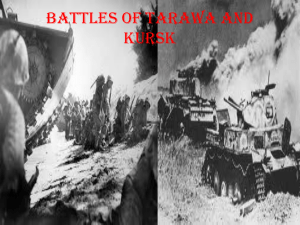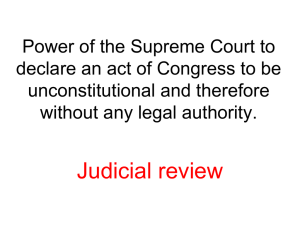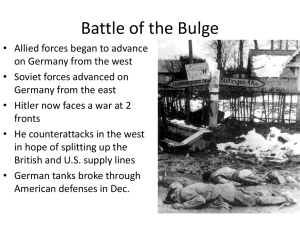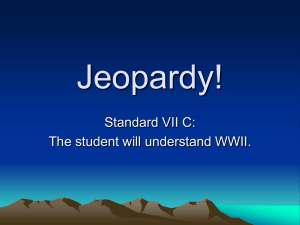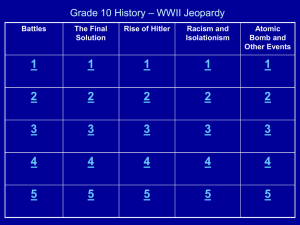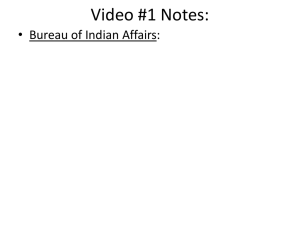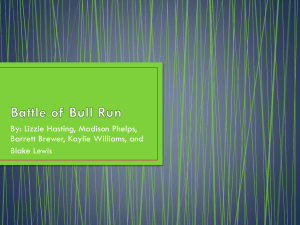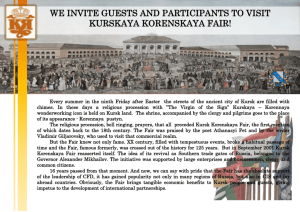The Russo-German War, 1941-1945
advertisement
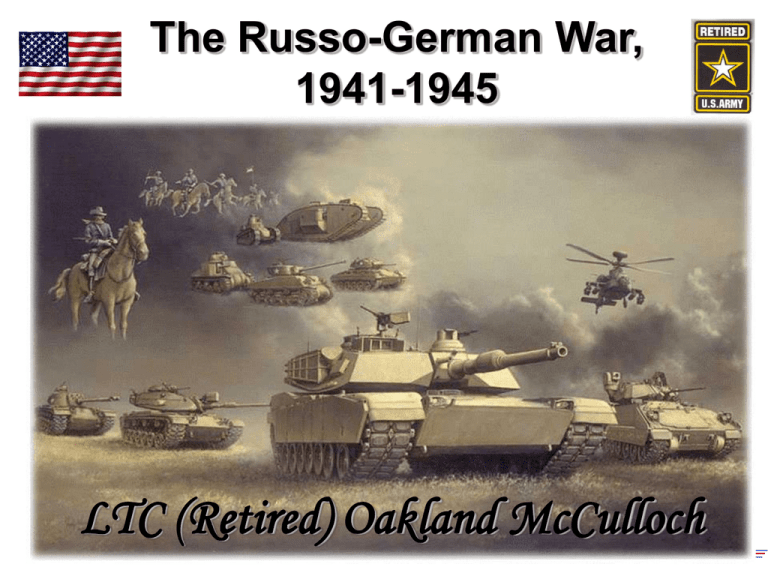
The Russo-German War, 1941-1945 LTC (Retired) Oakland McCulloch Outline • Non-Aggression Pact and Polish Deal • Operation Barbarossa – The Plan and Opening Moves – Decision Points – Outside Moscow • Battle for Stalingrad – Decision to Fight in the South – Splitting of Army Group South – Stalingrad • Kursk Battle – A Final Throw of the Dice • Battle for Berlin • Brutality of the War • Why the Soviet Union Won The Russo-German War, 1941-1945 German-Soviet Treaty of Non-Aggression • Signed 23 August 1939 • Set the stage for the first two years of World War II • Why would the two cooperate? • Both had fundamental objections to the Versailles Settlement • Both wanted territory in Eastern Europe Polish Deal • Germans and Soviets decided how to divide up Poland • Germans occupied a little less than half of Poland, the Soviets occupied the rest plus the Baltic States • Both were very brutal in their methods Operation Barbarossa The Russo-German War, • 22 June 1941 – 129 Anniversary of 1941-1945 Napoleon’s crossing of the Niemen th • Late Start • Not Well Defined Strategic or Operational Plan • German Forces • 153 Divisions - 3.6 Million soldiers, 3,600 tanks, 2,700 aircraft • Soviet Forces • 140 Divisions plus 40 brigades – 2.9 Million soldiers, 10-15,000 tanks, 8,000 aircraft • Complete tactical Surprise • Minsk, Kiev, Smolensk pockets • Fateful Decisions • Battle for Moscow The Russo-German War, Battle for Stalingrad 1941-1945 • Decision to Fight for Resources in the South • Splitting of Army Group South • The Decision to Capture Stalingrad • Encirclement and Loss of 6th Army The Russo-German War, 1941-1945 Battle for Kursk • Decision to Eliminate Kursk Salient • Decision to Delay the Attack • Loss of Initiative Russo-German Battle The for Berlin • Allied Decision Not to Take Berlin 1941-1945 • Stalin’s Plan • Hitler’s Orders • Civilian Suffering The Brutality of the War • Mass Execution of Civilians • Take No Prisoners • Scorched Earth Policy War, The Russo-German War, 1941-1945 Why the Soviets Won • Delaying the start of the war allowed Mother Nature to intervene • Fall rains, early winter • Lack of modern logistics nodes • Poor to non-existent roads • Non-standard railroad gauge • Poor airfields • Not prepared for a long war • Lack of Strategic and Operational direction from the start • Indecision at key times • Wrong choices made by Hitler • Very poor intelligence on Soviet capabilities • Tenacity of the Russian Soldier • US Logistical Support (mainly trucks) The Russo-German War, 1941-1945 Resources • Hitler’s Panzers East: World War II Reinterpreted, R.H. Stolfi • Hitler Moves East, 1941-1943, Paul Carell • Scorched Earth: The Russian-German War 1943-1944, Paul Carell • Operation Barbarossa: Strategy and Tactics on the Eastern Front, 1941, Bryan I. Fugate • The Russo-German War 1941-45, Albert Seaton • Deadlock Before Moscow: Army Group Center 1942/1943, Franz Kurowski • Enemy At The Gates: The Battle for Stalingrad, William Craig • Citadel: The Battle of Kursk, Robin Cross The Russo-German War 1941-1945 Questions ?
